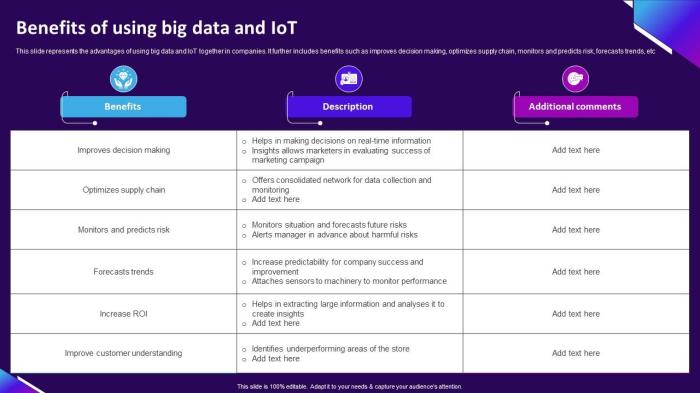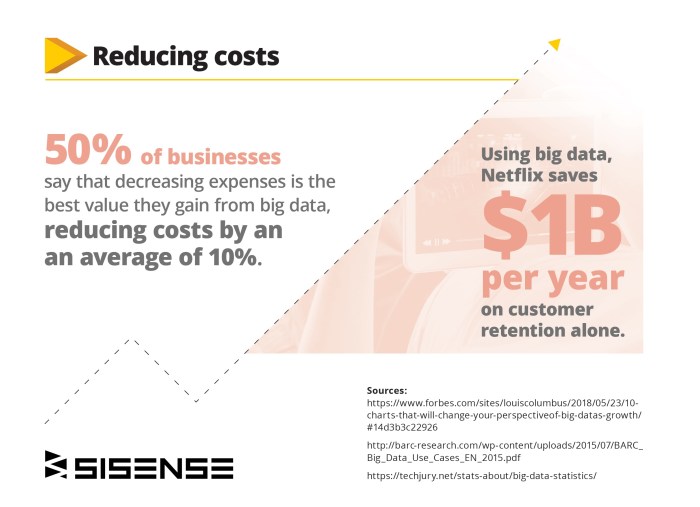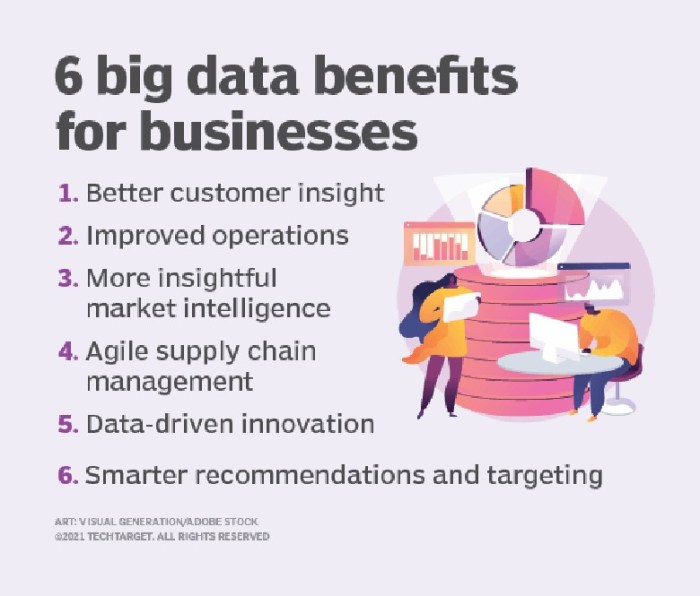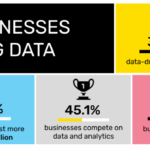Benefits of using big data technology are transforming the business landscape, enabling organizations to harness vast amounts of data for strategic advantage. As companies face an increasingly competitive environment, the ability to analyze and interpret big data becomes a crucial asset. This technology is not just a trend; it has evolved significantly over the past decade, integrating with cloud computing and reshaping how businesses operate and make decisions.
With the growth of big data technology, companies are now equipped to understand customer behaviors, streamline operations, and enhance decision-making processes. By leveraging sophisticated analytics, businesses can gain insights that drive customer engagement and improve overall efficiency. This comprehensive understanding of data empowers organizations to target their audiences effectively, resulting in increased profitability and a stronger market position.
Understanding Big Data Technology

Big data technology refers to the advanced tools and methodologies that enable organizations to analyze, interpret, and derive meaningful insights from vast volumes of data generated every second. These insights help businesses make informed decisions, improve efficiency, and create innovative solutions. The components of big data technology include data storage systems, processing frameworks, and analytical tools, all of which work together to manage and utilize data effectively.The evolution of big data technology over the past decade has been marked by significant advancements.
Initially, the focus was primarily on data storage and management, leading to the development of databases that could handle large data sets. As technology progressed, frameworks like Hadoop emerged, enabling distributed data processing across clusters of computers. Today, big data technology encompasses advanced analytics, machine learning, and artificial intelligence, allowing for real-time data analysis and predictive modeling. This evolution has been accelerated by the exponential growth of data generated through various channels, such as social media, IoT devices, and e-commerce transactions.
Role of Cloud Computing in Big Data Solutions
Cloud computing plays a critical role in enhancing big data solutions by providing scalable infrastructure, flexible resources, and cost-effective storage options. The integration of cloud services with big data technology has transformed how organizations handle their data workloads. This partnership enables companies to focus on data analytics rather than managing physical hardware.The importance of cloud computing in big data solutions can be highlighted through several key aspects:
- Scalability: Cloud platforms offer on-demand resources that can be scaled up or down based on the processing needs, allowing organizations to handle varying data loads efficiently.
- Cost Efficiency: By using cloud services, organizations can reduce capital expenditure on hardware and instead pay for only what they use, making big data initiatives more financially viable.
- Accessibility: Cloud computing facilitates remote access to data and analytics tools, enabling teams to collaborate effectively regardless of their physical location.
- Data Integration: Cloud services provide seamless integration with various data sources, making it easier to collect, store, and analyze large datasets.
- Security: Leading cloud providers implement robust security measures, ensuring that sensitive data is protected and complies with regulatory requirements.
- Real-Time Analytics: The combination of cloud computing and big data technology allows for real-time data processing and analysis, enhancing the agility and responsiveness of businesses.
The fusion of big data technology with cloud computing not only enhances data management capabilities but also drives innovation across various industries. Organizations that leverage this synergy can unlock new opportunities for growth and success in an increasingly data-driven world.
Advantages of Big Data in Business
The integration of big data technology offers significant advantages that empower businesses to make informed decisions, enhance operational efficiency, and strengthen customer relationships. By leveraging vast amounts of data, organizations can derive actionable insights that lead to strategic benefits and improved performance in various areas.Big data technology enables companies to understand market trends, optimize processes, and personalize offerings to meet the specific needs of their customers.
Data integrity is crucial for any organization, making the implementation of robust backup and recovery strategies necessary. To safeguard your valuable information, consider adopting the best practices for database backup and recovery processes. These practices not only minimize data loss risks but also ensure swift recovery in case of unexpected failures, allowing you to maintain business continuity.
The advantages of implementing big data can be transformative, providing companies with a competitive edge in increasingly dynamic markets.
Key Benefits of Implementing Big Data Technology
The implementation of big data technology provides several key benefits to enterprises, which can significantly enhance their competitive positioning.
- Informed Decision Making: Big data allows businesses to analyze vast datasets, resulting in insights that lead to better strategic decisions. Companies can identify market trends and consumer behavior more accurately.
- Operational Efficiency: Organizations can streamline operations by identifying inefficiencies and optimizing resource allocation through data analysis.
- Cost Reduction: By understanding trends and patterns, businesses can reduce costs associated with inventory management, supply chain logistics, and marketing efforts.
- Enhanced Customer Experiences: Big data enables businesses to tailor their offerings and improve customer service, leading to increased customer satisfaction and loyalty.
Examples of Companies Leveraging Big Data
Numerous companies have successfully harnessed big data to gain a competitive advantage. These examples demonstrate how big data can be utilized across different industries.
- Amazon: By analyzing customer purchase data and browsing history, Amazon provides personalized recommendations, increasing sales and customer engagement.
- Netflix: The streaming service uses viewer data to not only recommend content but also to guide its original programming decisions, ensuring high viewer engagement and satisfaction.
- Walmart: Walmart employs big data analytics for inventory management, predicting customer demand and improving supply chain efficiency, thus reducing costs significantly.
Customer Segmentation and Targeting
Big data plays a crucial role in customer segmentation and targeting, allowing businesses to tailor their marketing efforts more effectively. By analyzing diverse data sources, companies can create detailed customer profiles and segment their audience based on various criteria.
- Demographic Segmentation: Organizations can segment customers based on age, gender, income, and other demographic factors, allowing for targeted marketing campaigns that resonate with specific groups.
- Behavioral Segmentation: By analyzing customer behavior, businesses can identify patterns in purchasing habits, enabling personalized marketing strategies that increase conversion rates.
- Geographic Segmentation: Companies can target customers based on their location, using regional trends and preferences to tailor offerings and promotions effectively.
- Psychographic Segmentation: Understanding customer lifestyles, interests, and values helps businesses create messaging that aligns with their audience’s motivations and desires.
“The ability to utilize big data analytics allows businesses to create a more personalized and relevant customer experience, driving loyalty and sales.”
Big Data in Decision Making: Benefits Of Using Big Data Technology

Big data technology has revolutionized the way organizations approach decision-making processes. By leveraging vast amounts of data collected from various sources, businesses can derive actionable insights that enhance their strategic choices. The integration of big data into decision-making not only fosters a more informed environment but also paves the way for innovative solutions to complex challenges.The power of big data lies in its ability to facilitate data-driven decision-making, providing companies with a robust analytical framework.
Businesses no longer rely solely on intuition or historical data; instead, they can harness predictive analytics and real-time data processing to inform their strategies. This shift is reflected across various industries where timely insights can lead to significant competitive advantages.
Enhanced Decision-Making Through Case Studies
Numerous organizations have successfully implemented big data analytics to improve their decision-making processes. For instance, a prominent retail chain utilized big data to analyze consumer purchasing patterns. By understanding these patterns, they optimized inventory levels and reduced stockouts by 20%, significantly boosting customer satisfaction and sales revenue.In another example, a healthcare provider adopted big data technologies to streamline patient care.
By analyzing vast datasets from patient records, they identified trends in treatment outcomes, ultimately leading to a 15% reduction in hospital readmission rates. This case highlights how data-driven insights can directly impact operational efficiency and patient care quality.The impact of big data analytics on operational efficiency cannot be overstated. Organizations that embrace big data technology often experience streamlined processes, reduced costs, and improved productivity.
The following points illustrate the significant advantages of utilizing big data in operational decision-making:
- Predictive Maintenance: Big data analytics enables companies to anticipate equipment failures before they occur, minimizing downtime and maintenance costs.
- Supply Chain Optimization: Analyzing data from various supply chain stages allows businesses to optimize their logistics, leading to faster deliveries and reduced operational costs.
- Enhanced Customer Experience: By profiling customer behavior through big data insights, organizations can tailor their services, increasing customer satisfaction and loyalty.
Implementing big data technology leads to data-driven decision-making that improves organizations’ overall effectiveness. Companies can make informed choices based on comprehensive analyses rather than relying on traditional, less agile methods. The emphasis on big data in decision-making is poised to shape the future of business operations across all sectors.
When it comes to ensuring optimal performance and stability of your databases, employing the right tools is essential. Explore the best tools for database monitoring and performance analysis that can provide insights into query performance, resource usage, and potential bottlenecks. By leveraging these tools, you can proactively manage your database environment and enhance overall efficiency.
Challenges and Solutions in Big Data Implementation
The adoption of big data technology brings a plethora of opportunities for businesses; however, it also presents numerous challenges that can hinder successful implementation. As organizations navigate through the complexities of big data, understanding these challenges and developing strategies to overcome them becomes crucial for maximizing the benefits of big data initiatives.Key challenges businesses face during big data adoption include data integration, data quality issues, skill gaps, and ensuring data privacy and security.
As organizations strive to harness the power of big data, they must address these hurdles effectively to maintain competitiveness and drive innovation.
Common Challenges in Big Data Adoption
Several common challenges can obstruct the seamless integration of big data solutions within a business framework. Recognizing these challenges can help organizations prepare for and mitigate potential setbacks.
- Data Integration: Aggregating data from diverse sources can lead to inconsistencies and compatibility issues, complicating analysis efforts.
- Data Quality: Poor quality data can result in inaccurate insights. Businesses often struggle with cleansing and validating large datasets.
- Skill Gaps: Many organizations face a shortage of professionals with the necessary expertise in data analytics and big data technologies.
- Data Privacy and Security: Protecting sensitive information while complying with regulations poses a significant challenge in big data projects.
Best Practices for Overcoming Big Data Implementation Hurdles
Developing a structured approach to tackle big data challenges can significantly improve implementation success. Here are best practices that organizations should consider adopting:
- Implement Robust Data Management Frameworks: Establishing comprehensive strategies for data governance, including data quality metrics and integration protocols ensures a smooth workflow.
- Invest in Training and Development: Providing continuous training for employees can bridge skill gaps and enhance the overall data competency within the organization.
- Utilize Automated Tools: Leveraging automation for data cleansing and integration can reduce time and effort, ensuring high-quality data is readily available for analysis.
- Prioritize Data Security: Implementing stringent security measures, such as encryption and access controls, protects sensitive information and maintains compliance with regulatory requirements.
Importance of Data Governance and Security, Benefits of using big data technology
Data governance and security are cornerstones in the realm of big data implementation. Effective governance frameworks facilitate data quality, ensure compliance with regulations, and establish clear data ownership to prevent misuse and mismanagement. Data security, on the other hand, is paramount to maintaining customer trust and protecting organizational reputation. With increasing data breaches and cybersecurity threats, organizations must prioritize security protocols to safeguard sensitive information against unauthorized access and potential harm.
“Effective data governance and security not only protect sensitive information but also enhance the credibility and reliability of data-driven insights.”
By proactively addressing challenges and implementing best practices, businesses can unlock the full potential of big data, leading to informed decision-making and enhanced operational efficiency.
Future Trends in Big Data Technology

The landscape of big data technology is rapidly evolving, driven by technological advancements and increasing demand for data-driven insights. As organizations continue to harness the power of data, several trends are emerging that will significantly shape the future of big data technology. These trends not only enhance the capabilities of data analytics but also pave the way for innovative applications across various sectors.The integration of artificial intelligence (AI) with big data is one of the most notable trends that will redefine data processing and utilization.
AI technologies, such as machine learning and deep learning, enable organizations to analyze vast amounts of data more efficiently and extract actionable insights. This synergy between big data and AI leads to improved predictive analytics, personalized customer experiences, and enhanced decision-making processes.
Integration of Artificial Intelligence with Big Data
The convergence of AI and big data technology is transforming how businesses operate. By leveraging AI algorithms, organizations can process and analyze data at unprecedented speeds and accuracy levels. This integration allows for real-time data interpretation, which is crucial in today’s fast-paced business environment. Here are several ways in which AI enhances big data capabilities:
- Automated Data Processing: AI can automate the data cleaning and preparation processes, reducing the time and effort required to make data usable for analysis.
- Enhanced Predictive Analytics: Machine learning models can identify patterns in historical data, enabling businesses to forecast trends and make informed decisions.
- Natural Language Processing (NLP): AI-powered NLP tools can analyze unstructured data, such as social media posts and customer feedback, providing valuable insights into consumer sentiment.
- Personalization: AI algorithms can analyze customer data to deliver personalized experiences, leading to higher customer satisfaction and loyalty.
- Anomaly Detection: AI can identify unusual patterns or behaviors in data, enhancing fraud detection and risk management strategies.
The sectors set to benefit significantly from advancements in big data technology are diverse, including finance, healthcare, retail, and manufacturing. Each of these industries is utilizing big data to drive innovation and improve outcomes.
Sectors Benefiting from Advancements in Big Data Technology
The influence of big data technology is pervasive, enhancing operational efficiency and decision-making across various sectors. The following sectors exemplify areas where big data is making a substantial impact:
- Finance: Financial institutions leverage big data analytics to detect fraud, assess risk, and optimize trading strategies, ensuring regulatory compliance and enhancing customer trust.
- Healthcare: Big data is revolutionizing healthcare through predictive analytics for patient care, personalized medicine, and efficient management of healthcare records, leading to improved patient outcomes.
- Retail: Retailers utilize big data to analyze consumer behavior, optimize inventory management, and enhance marketing strategies, resulting in increased sales and customer satisfaction.
- Manufacturing: In manufacturing, big data analytics aids in predictive maintenance, supply chain optimization, and quality control, ultimately driving down costs and improving productivity.
- Telecommunications: Telecom companies use big data to analyze customer usage patterns, improve service delivery, and reduce churn rates through targeted marketing efforts.
The future of big data technology is poised for remarkable growth, driven by innovative solutions and the increasing demand for data-driven decision-making across industries. As organizations continue to embrace these trends, the potential for big data to transform operations and enhance competitive advantage will only expand.


